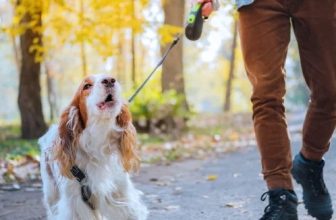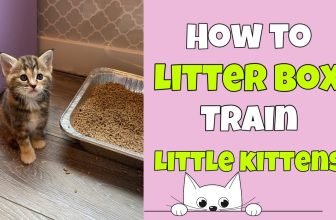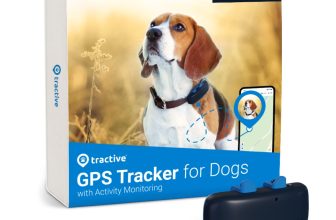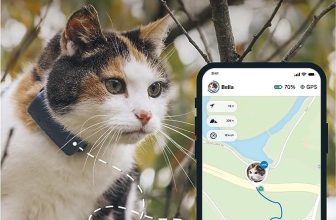How to Teach a Puppy No Biting: Gentle & Effective Tips
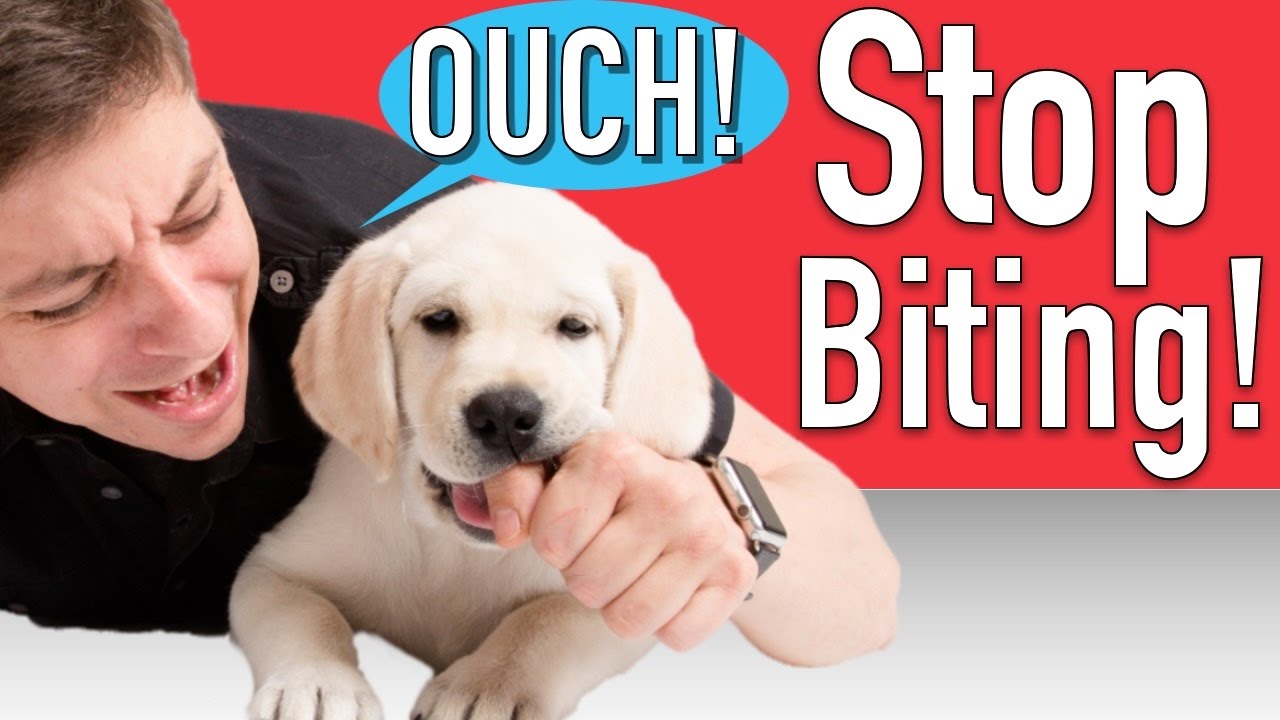
How to Teach a Puppy No Biting: Puppies love to explore the world through their lips. Biting is a natural activity, but it can lead to problems.
To teach your puppy not to bite is critical for both their safety and your comfort. In this book, you will learn simple and effective ways to keep your puppy from biting. Knowing why pups bite is the first step. Puppies frequently bite out of play or because they are teething.
It is critical to address this behaviour early on. If left uncontrolled, it might cause more significant problems as your puppy matures. With patience and persistent training, you may teach your puppy to play softly. Let’s look at some practical ways to help your animal pet acquire excellent behaviours.
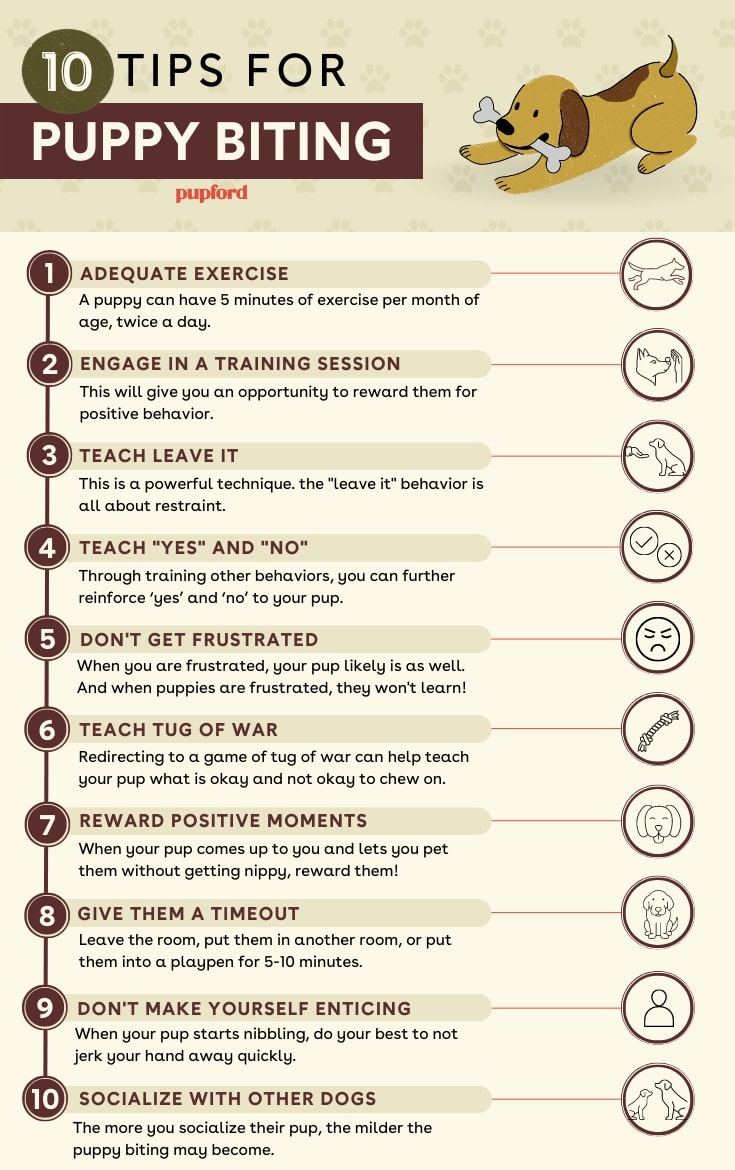
How to Teach a Puppy No Biting
Credit: pupford.com
Introduction To Puppy Biting
Puppies bite for many reasons. They are curious and playful. Biting is a natural way for them to explore. They may also be teething. This can cause pain and discomfort. Puppies will chew on things to feel better.
They learn about their world through their mouths. Biting can also be a way to get attention. If a puppy feels bored or excited, it may nip at you. Understanding why puppies bite is key to stopping it.
Setting clear expectations is important for training. Always be gentle yet firm. Let your puppy know that biting is not okay. Use positive reinforcement when they play nicely. This helps them learn the right behaviour.

Credit: www.facebook.com
Establishing Trust With Your Puppy
Building a strong bond with your puppy is very important. Trust helps your puppy feel safe. Spend time together every day. Play games and go for walks. Use kind words and gentle touches. This shows your puppy you care.
Creating a safe space for your puppy is essential. A cosy bed or a quiet corner works well. This space helps your puppy relax. It is a place to feel secure. Avoid loud noises and busy areas. Your puppy needs peace to grow and learn.
Bite Inhibition Training
To teach a puppy to stop biting is important. Bite inhibition helps dogs learn to control their mouth. Start with simple techniques for bite control.
Use toys for playtime. Let the puppy chew on appropriate toys. This teaches them what is okay to bite. Avoid using hands for play. Always redirect biting to a toy.
Play interactive games. Games like fetch or tug-of-war are great. These games use energy and can reduce biting. Praise the puppy when they play nicely.
Socialise your puppy with other dogs. This helps them learn bite control from their peers. Watch for signs of biting and intervene if necessary.

How to Teach a Puppy No Biting
Credit: m.youtube.com
Using Positive Reinforcement
Using positive reinforcement is a great way to teach your puppy to stop biting. Give your puppy treats or praise when they don’t bite. This helps them learn what you want. Always be kind and patient.
Rewards over punishments work best. Puppies respond better to happy experiences. If they bite, say “no” and ignore them. When they play nicely, reward them right away.
Be consistent in your commands. Always use the same words. This makes it easier for your puppy to understand. If you say “no” one time and “stop” another, they will be confused.
Stick to your rules. This helps your puppy learn faster. Remember, training takes time. Stay calm and enjoy the process.In this way, you can teach your puppy to stop biting.
Redirecting Biting Behavior
To stop a puppy from biting, use appropriate chew toys. These toys give your puppy something to bite. Choose toys that are safe and durable. Soft toys work well for gentle play. Harder toys are great for strong chewers. Always supervise your puppy with toys.
Use deterrents and distractions to change biting behaviour. If your puppy bites, redirect their attention. Offer a chew toy instead. This teaches them what is okay to bite. Praise your puppy when they use the toy. This helps them learn quickly.
Consistency is key. Everyone in the household must follow the same rules. This helps your puppy understand better. With time, your puppy will learn not to bite.
Socialization And Its Role In Biting
Socialisation helps puppies learn about the world. It teaches them how to play nicely. Playtime with other dogs is important. It shows them the right way to act. Puppies learn to bite softly during play. They understand boundaries through interaction.
Exposure to new environments is crucial too. It helps puppies feel comfortable around different places. New sights and sounds can be exciting. This experience reduces fear and anxiety. A confident puppy is less likely to bite out of fear.
Allow your puppy to meet new dogs. Organise playdates at parks. Visit friends with friendly dogs. Take your puppy on short trips. Each experience builds good behaviour.
Handling Nipping With Gentle Discipline
To stop a puppy from biting, use firm commands. Say “no” clearly. Use a calm voice. This helps the puppy understand. Consistent commands are key. Always use the same words.
Another way is the time-out strategy. If the puppy bites, stop playtime. Walk away for a moment. This teaches the puppy that biting ends in fun. Repeat this often. It helps the puppy learn quickly to stop biting.
Recognizing And Responding To Teething
Puppies go through a teething phase. It usually happens between 3 and 6 months. During this time, they may chew on many things. This chewing helps their teeth grow. It is important to recognise the signs of teething.
- Increased chewing: Puppies chew more than usual.
- Drooling: Extreme drooling can be common.
- Irritability: Teething can make puppies grumpy.
- Swollen gums: gums may appear red or swollen.
To soothe teething discomfort, offer safe toys. Frozen toys can help numb their gums. Chew toys made of soft rubber are good too. Always supervise your puppy while they chew.
When To Seek Professional Help
Seeking help from a dog trainer can be very helpful. They have skills to teach your puppy not to bite. Trainers understand puppy behaviour well. They can guide you on the best methods.
Behavioural specialists also help with biting issues. They focus on why your puppy bites. Understanding the cause is important. Specialists create plans to change the behaviour. They work closely with you and your puppy.
Both trainers and specialists offer support. They help you feel more confident in training. Finding the right help is key for a happy puppy.
Maintaining Progress And Patience
Tracking training milestones is important. It helps see your puppy’s progress. Use a chart to note each achievement. Celebrate small wins to keep it fun. This keeps both you and your puppy motivated.
Staying calm and positive is key. Puppies can sense your feelings. If you stay relaxed, your puppy will too. Use a gentle tone when you say “no.” Keep training sessions short and enjoyable. This helps your puppy learn better.
Frequently Asked Questions
How Can I Stop My Puppy From Biting?
To stop your puppy from biting, use positive reinforcement techniques. Whenever your puppy bites, redirect their attention to a toy. Consistently reward them when they chew on appropriate items. This helps them learn what is acceptable to bite and promotes good behaviour.
What Are Effective Methods To Teach No Biting?
Effective methods include using a firm “no,” redirecting to toys, and offering praise for good behaviour. Time-outs can also be useful when biting occurs. Consistency is key; ensure everyone in the household follows the same approach to reinforce the lessons learnt.
When Do Puppies Stop Biting?
Puppies typically start to reduce biting around 6 months of age. Their adult teeth come in, and they begin to understand social cues better. However, ongoing training and redirection are necessary to ensure they learn appropriate behaviour beyond this age.
Is Biting a Normal Puppy Behaviour?
Yes, biting is a normal behaviour for puppies. They explore the world through their mouths, and biting helps with teething. However, it’s essential to guide them towards appropriate chewing habits to prevent future issues and to promote safe interactions with people and other pets.
Conclusion
How to Teach a Puppy No Biting: To teach your puppy not to bite takes patience and consistency. Use positive reinforcement to guide their behaviour. Practice regularly and stay calm during training. Remember, every puppy learns at their own pace. Celebrate small victories, and be kind to your furry friend.
With time, your puppy will learn to play gently. Enjoy the process and build a strong bond. A well-behaved puppy brings joy to your home. Stay committed, and your efforts will pay off. Together, you can create a happy, bite-free environment.


